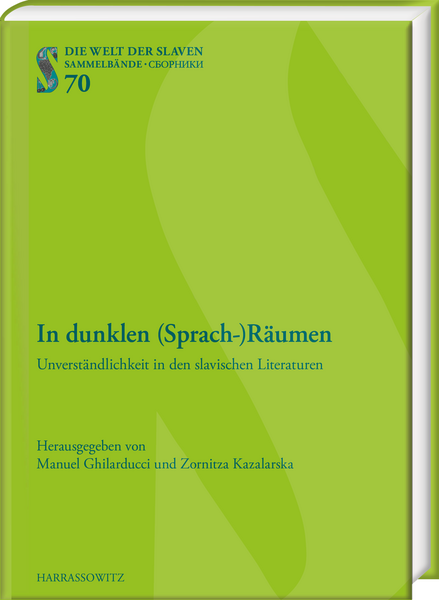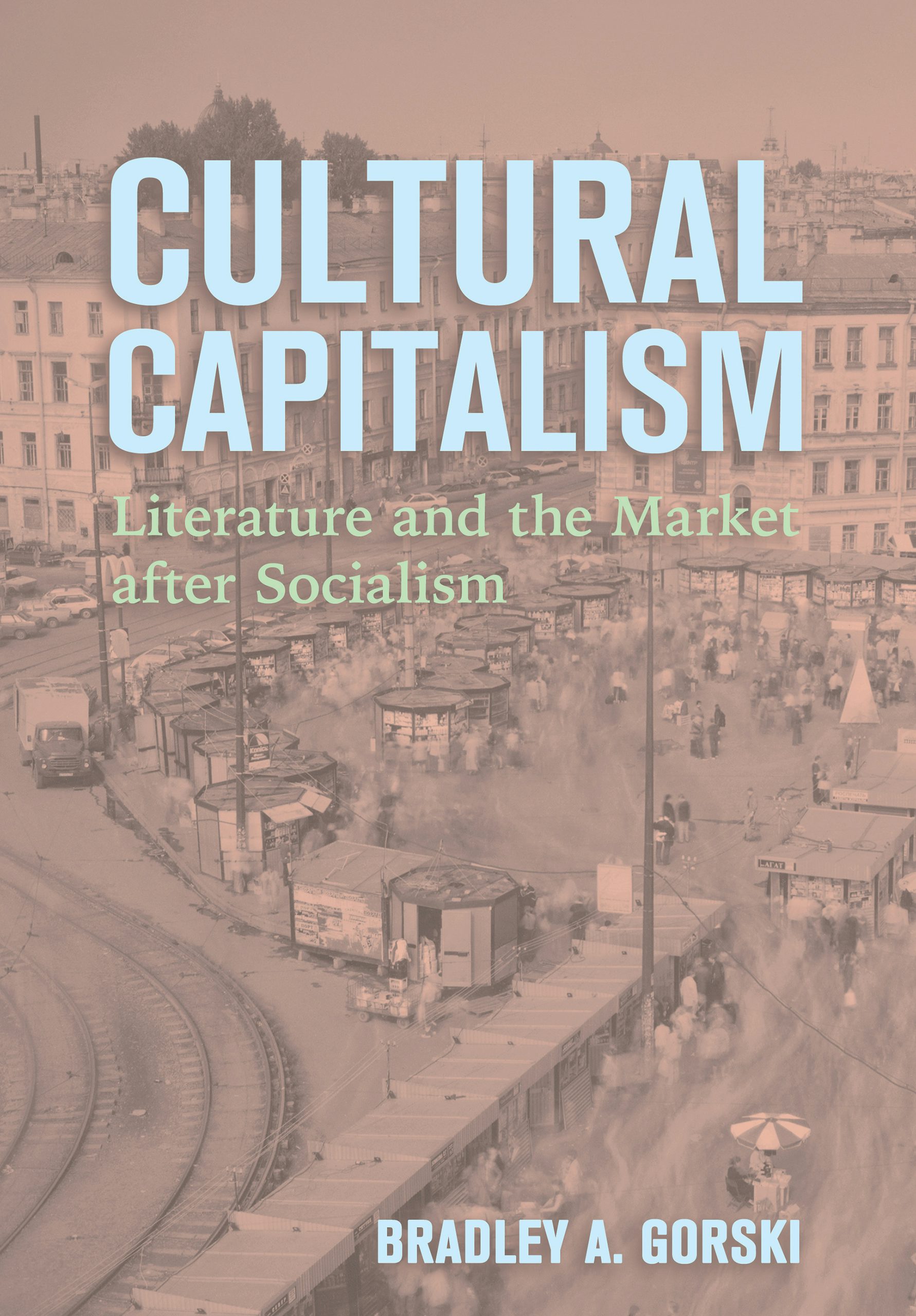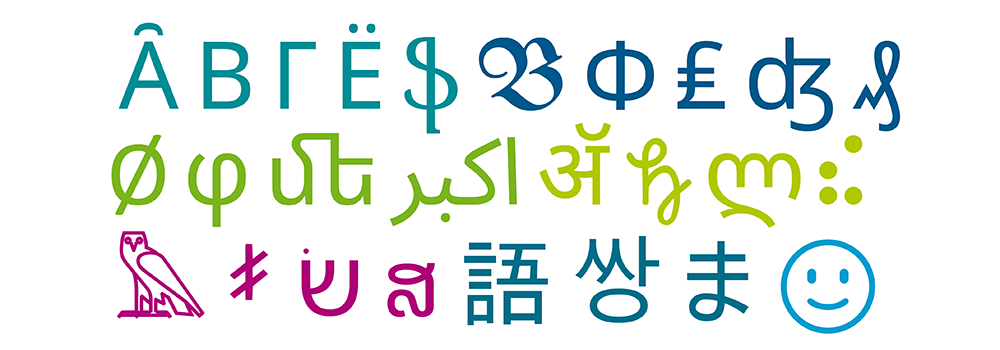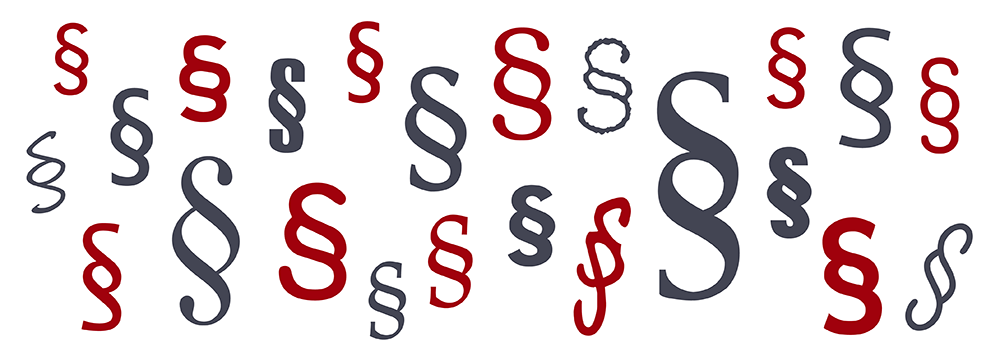In dunklen (Sprach-) Räumen: Unverständlichkeit in den slavischen Literaturen In dunklen (Sprach-)Räumen ist das Ergebnis der gleichnamigen Tagung, die am 20. und 21. September 2021 an der Humboldt-Universität zu Berlin stattfand.
In dunklen (Sprach-)Räumen ist das Ergebnis der gleichnamigen Tagung, die am 20. und 21. September 2021 an der Humboldt-Universität zu Berlin stattfand.
Die Beiträge des von Manuel Ghilarducci und Zornitza Kazalarska herausgegebenen Sammelbands loten das Problem der Unverständlichkeit in den slavischen Literaturen auf der poetologischen, (inter)medialen und diskursiven Ebene aus: Sie umkreisen zum einen ein umfangreiches Reservoir von poetischen Bildern wie Nebel und Dämmerung, Abgrund und Sumpf, Labyrinth und Krypta, Arabeske und Fleck, die zugleich als Reflexionsfiguren hermetischer Dunkelheit fungieren. Zum anderen werden literatur- und übersetzungskritische Diskurse der Unverständlichkeit in ihren historischen Kontexten aufgefächert. Dabei gehen die Autor:innen nicht nur zentralen, im Diskurs der Hermeneutik fest verankerten Dichotomien wie „Tiefe vs. Oberfläche“, „Dunkelheit vs. Licht“ und „Latenz vs. Manifestation“ auf die Spur, sondern registrieren Momente ihrer Umkehrungen bzw. Verunsicherungen durch feinfühlige Nuancierung der Gegensätze.
zum Buch im ULB-KatalogPlus
zum Buch auf der Verlags-Website
Cultural Capitalism: Literature and the Market After Socialism Cultural Capitalism explores Russian literature’s eager embrace of capitalism in the post-Soviet era.
Cultural Capitalism explores Russian literature’s eager embrace of capitalism in the post-Soviet era.
When the Soviet Union fell, books were suddenly bought and sold as commodities. Russia’s first bestseller lists brought attention and prestige. Even literary prizes turned to the market for legitimacy. The rise of capitalism entirely transformed both the economics and the aesthetics of Russian literature. By reconstructing the market’s influence on everything from late-Soviet paper shortages to the prose of neoimperialism, Cultural Capitalism reveals Russian literature’s exuberant hopes for and deep disappointments in capitalism. Only a free market, it was hoped, could cure endemic book deficits and liberate literature from ideological constraints. But as the market came to dominate literature, it imposed an ideology of its own, one that directed literary development for decades.
Through archival research, original interviews, and provocative readings of literary texts, Bradley A. Gorski immerses the reader in both the economic and aesthetic worlds of post-Soviet Russian literature to reveal a cultural logic dominated by capitalism. The Russian 1990s and early 2000s saw markets introduced, adopted, and debated at an accelerated pace, all against the backdrop of a socialist past, staging the polemics between capitalism and culture in high drama and sharp relief. But the market forces at the center of the post-Soviet transition are fundamental to cultural trends worldwide. By revealing the complexities of Russia’s story, Cultural Capitalism mounts a critique that cuts across national borders and provides a new way of seeing culture in the post-1989 era worldwide.
zum Buch im ULB-KatalogPlus
zum Buch auf der Verlags-Website



Schreibe einen Kommentar